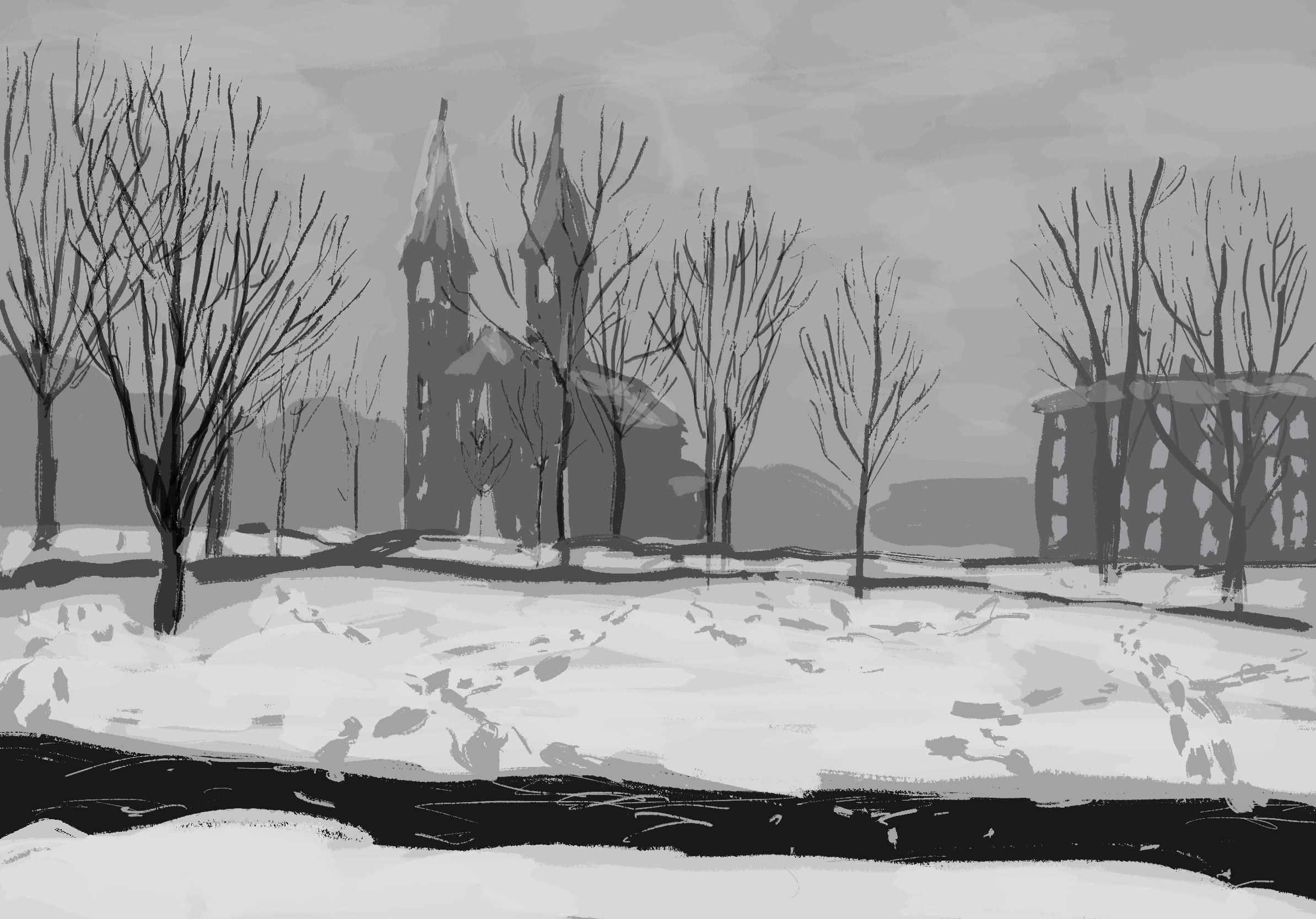Reading walkways like emotional webs
February 11, 2022
 This
piece represents the opinion of the author
.
This
piece represents the opinion of the author
.
 Kyra Tan
Kyra TanFree associative writing brings out something in us that we never really found before, but it takes a lot of nonsensical rambling to actually get anywhere. It does so in the same way that talking nonsense with hometown friends can lead to world shattering epiphanies—ones where you realize where you really are.
If you have spent any amount of time in a humanities classroom, you have learned that most social phenomena are subject to bias from a dizzying multitude of different directions: schools influence your values, your family influences your beliefs, your community influences your opportunities and you’re left in the middle of a web of relations that bind you and completely engulf your view.
This is the crisis I found myself in at the least opportune time imaginable—in the middle of my freshman spring semester, April 2020.
Since then, conversations about how we are feeling, how we are doing, our mental states and emotional capacities have left behind this sea of terms: yet another web of ideas that surfaced and then gets submerged underneath conversations of politics and social action.
It is revealing to witness the rise and fall of social currents through the way people talk about them, an example being the way people describe social relationships and how we communicate emotions. I can summarize a common opinion on our campus by saying, “the more things change the more they stay the same.”
The more people talk about mental health, the more we realize there will always be things that we will never be allowed to express. It is like a maze: you walk blindfolded and you hold onto the walls, guiding yourself towards some opening, towards some way out.
Walking across campus, through the quad pathways between classes, I tend to close my eyes and imagine this maze, Bowdoin’s social web and how its walls are felt. I run my hand across its imagined concrete sides, how cold it feels, the rough edges that seem unfinished, weirdly malleable like wet concrete.
This morning I had some time alone in my apartment, a gap between temporal barriers, and I picked up a weird theory book by Ernst Bloch, a Frankfurt school reject writing about the very young Marx three years before he even thought about writing his dissertation, let alone Capital. I started to realize why Bloch was not invited into the prestigious collective of European refugees who established the little-known school of thought of Critical Theory.
I read in its pages a joy that doesn’t belong in a Marxist text. It was as if Bloch was excited to depict Marx in the middle of the simmering rubble of post-Hegelian German philosophy. For Bloch, disillusionment in modern life is not some gloomy awakening where existence loses its enchanting and religious aura.
There is more to the idea that religion expresses real pain because Marx would take on its same objective of expressing “what really is,” the only difference being his individualist fervor of going beyond any barrier that might’ve left his contemporaries behind. Bloch’s Marx felt his way to a gap between his own constellation of ideological walls.
Sometimes writing nonsense on a page brings a little spark of joy, especially as weeks blur together and different academic institutions make you question your authority on what you write. I did not want to end this entry with a summarizing piece of advice. If I did, I would write something like, “be the young Marx to whatever you are an expert in.”
The advice I do give is that while the mind-bogglingly dense complexity of social relations that links you to all of existence might seem daunting, letting yourself drift back and find form in this mess can be one of the most meaningful ways you can “waste time” between classes.

Comments
Before submitting a comment, please review our comment policy. Some key points from the policy: